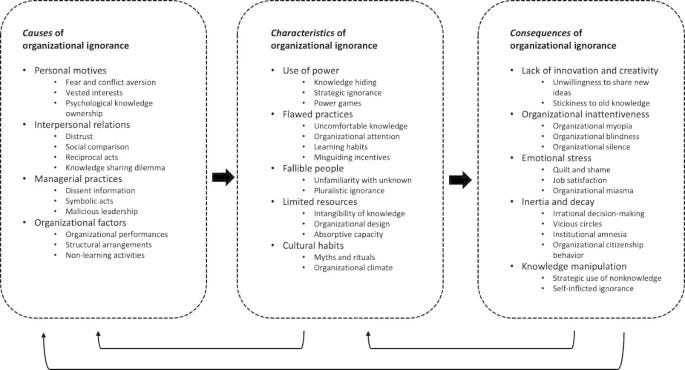Ignorance Management - Part 3: Scandignorance
I have some thoughts - again
The original talk I gave on Ignorance Management was in 2019. However Ignorance is fast-moving, dynamic field and while doing some searching for papers, I discovered a couple of major new publications. Firstly, Harri Jalonen (who has a relatively uncrazy name for a Finn) has conducted a systemic literature review on ignorance in organizations.
This is paper is well worth reading. The author both collates many resources and adds his own contributions. However the paper itself feels like a bactrian camel. It goes up at the start, dips in the middle and then goes up at the end again.
Lets begin with a section that had me agreeing the f- out of it.
“However, compared to knowing, ignorance is far less studied, especially as an organisational phenomenon. This is both confusing and regrettable. It is confusing because ignorance is more common than knowing and regrettable because ignorance could help understand the challenges and opportunities of managing knowledge in a new way.”
The author here is absolutely correct. Ignorance is an understudied phenomenon (du-du-di-di-du). And this lack of attention has indeed had a negative impact on the world as we
Therefore Jalonen proposes what he calls pessimistic and optimistic readings of ignorance - ignorance as flaw vs ignorance as opportunity. Good ignorance and bad ignorance. Ignorance and Ignorance’s evil twin with a goatee beard.
“Perhaps the view that ignorance is dysfunctional is too narrow and its potential is underestimated.”
While Jalonen starts with this sophisticated perspective, the middle part of the article which outlines the causes, characteristics, and consequences of our protagonist focuses purely on the evil twin. It’s not wrong but it feels incomplete.
Additionally, the consequences identified seem to be psychological or sociological. There’s not much mention of of financial loss and unnecessary risks.
The 2x2 matrix segments ignorance by managerial intentionality and its dynamics of expansion. This is absolutely a valid way of carving up the terrain but as a manager I am not sure what to do with this framework. How does it help me manage ignorance?
One way might be to map out ignorance across something like Luthans’ management practices or the APQC’s Process Classification Framework.
Jalonen’s questions for further research are all good ones. “Finally, ignorance can sometimes benefit organisations”
The second component of our Scandigorance double is this special issue of Epherma on Organised Ignorance pulled together by Morten Knudsen & Justine Grønbæk Pors (both Danish) and Tore Bakken (Norwegian).
“Organisations’ ability to marginalise potentially uncomfortable knowledge can be crucial and rich and important work has illuminated how organisations manage ignorance strategically… we aim to move the field of ignorance studies forward… by exploring the work and practices involved in producing and maintaining ignorance.”
The authors do not like ignorance. They seem to see ignorance as a weapon wielded by the strong over the weak - a source of control. Which is absolutely true but is not the whole story. There are many different kinds of ignorance and both positive and negative effects.
Overall, I agree with the authors that ignorance is enacted, socially constructed, and relational. It can sometimes be enabled and productive. I am less convinced that it is non-human. I would have preferred a broader focus.
Finally, the most important question. When will Sweden play their part in Organizational Ignorance studies?


